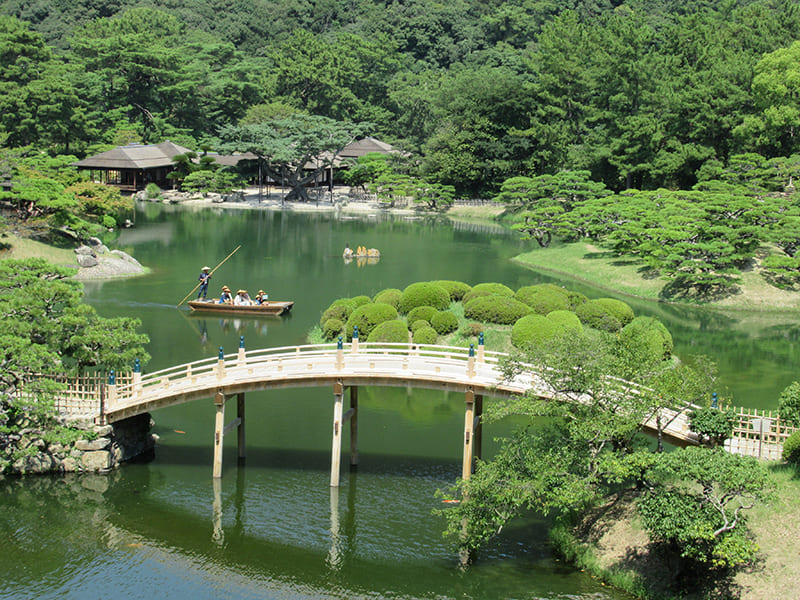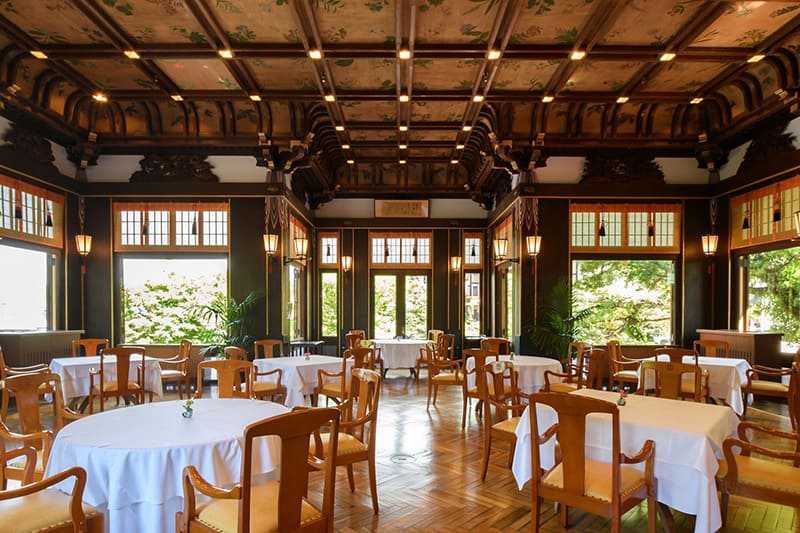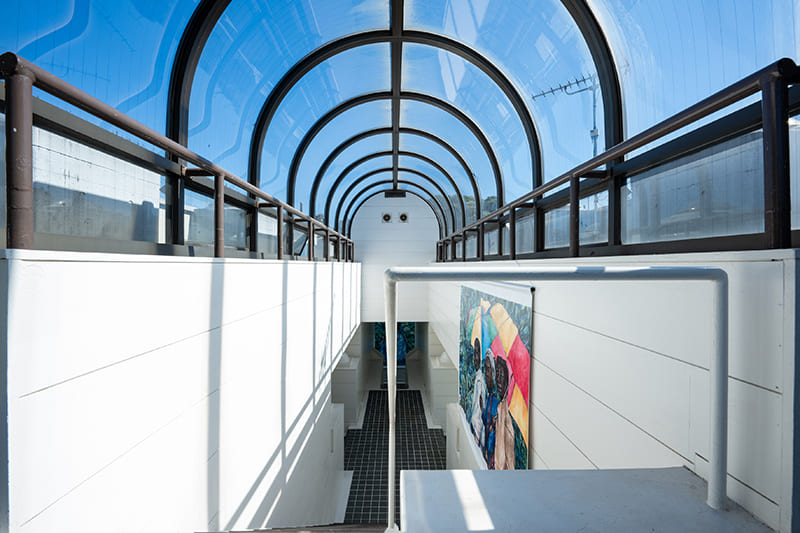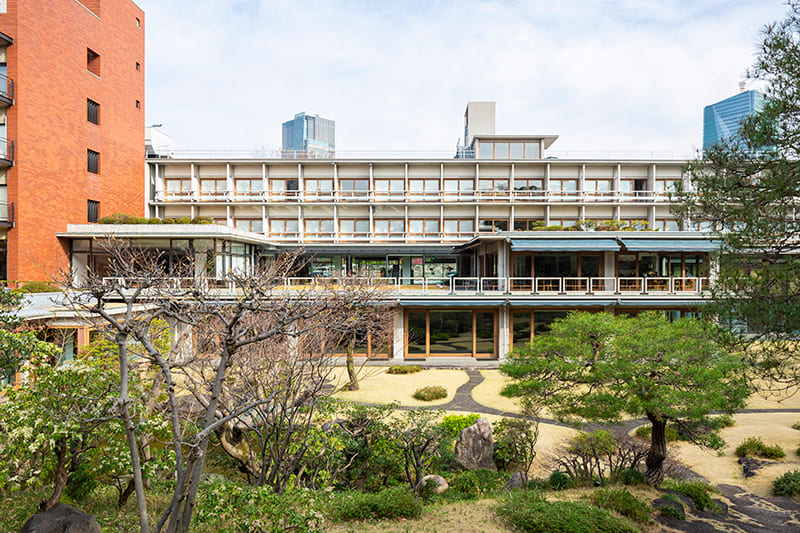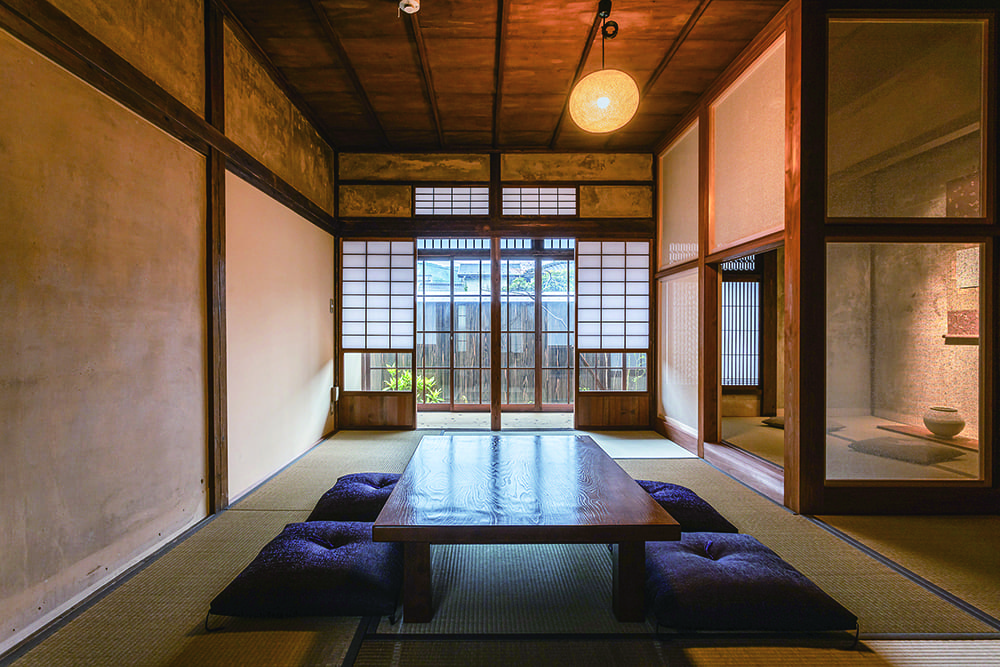December 16, 2021
Bringing new life to old homes, and communities
MATSUMOTO
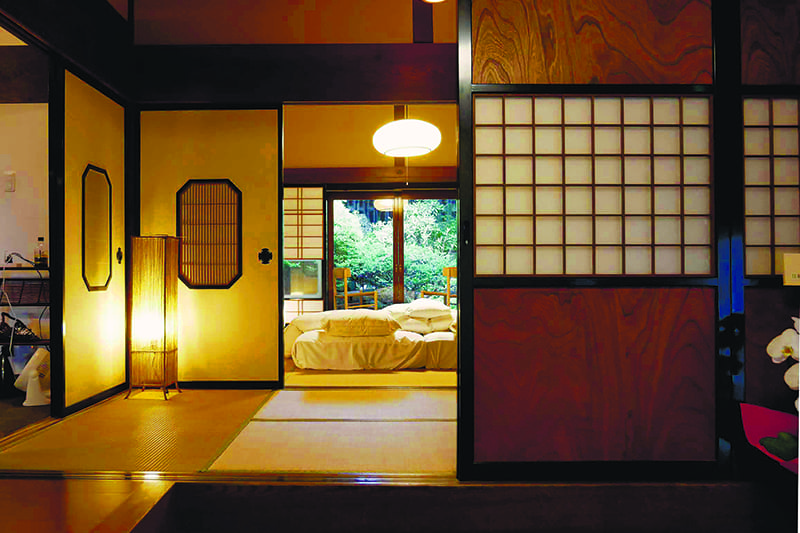
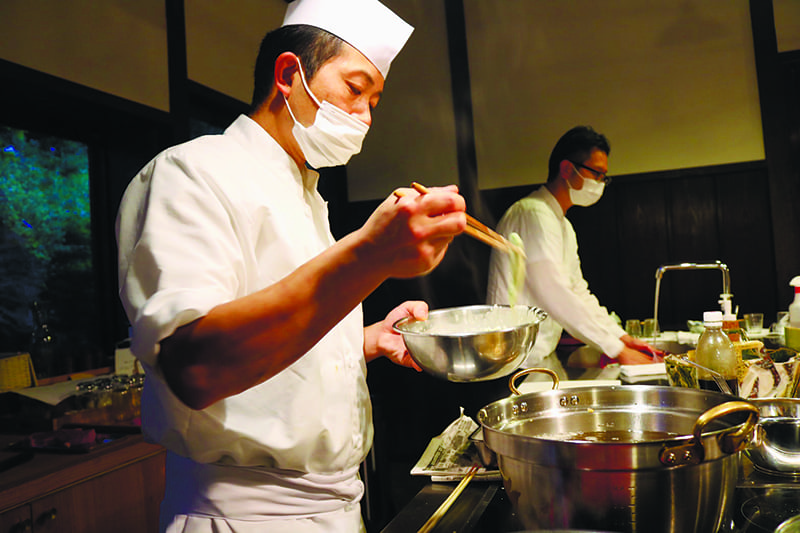
Includes a 190-year-old storehouse. It is set in peaceful countryside overlooking the Northern Alps and includes fields where guests can experience farming.
● 5471 Nakayama, Matsumoto-shi, Nagano Tel: 0263-88-3266
COURTESY: TOBIRA GROUP
Matsumoto in Nagano Prefecture is known for its castle, a national treasure, in the city’s center. It also boasts a proud history, unique culture and direct access to Tokyo by train. For those reasons, Matsumoto’s population of 240,000 includes many who have moved from elsewhere, and it attracts many tourists. Tadamasa Saito, who was born and bred in the city, is the current leader of Tobira Holdings, which has been in the lodging business for four generations. The company’s interests in Matsumoto now span restaurants and hotels, including the long-established inn Myojinkan, which has been in business for 90 years.
For several years now Saito has overseen a project to painstakingly renovate Matsumoto’s historic houses and transform them into hotels. The project, which can involve entire local communities, represents a new approach to tourism.
Satoyama Villa Den was opened in 2019 in a renovated property that includes a 190-year-old storehouse. Set in peaceful countryside overlooking the Northern Alps, the hotel takes about 15 minutes to reach from Matsumoto by car. Its concept is “Sense of Place,” and it is designed to give visitors a taste of traditional country life. The property even includes fields where guests can experience farming. “Hotels used to offer experiences that were out of the ordinary,” Saito said. “Now values and travel styles have diversified, and so here we offer the chance to leave your usual routine behind and experience the local routine here.”
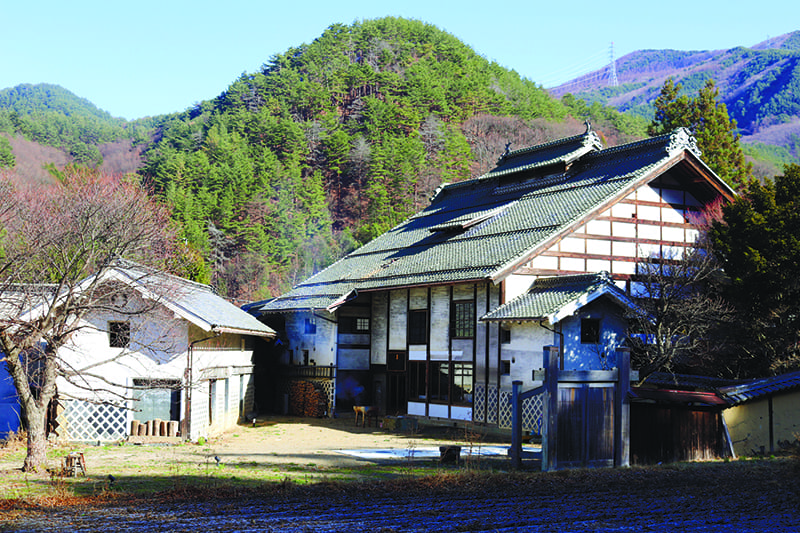
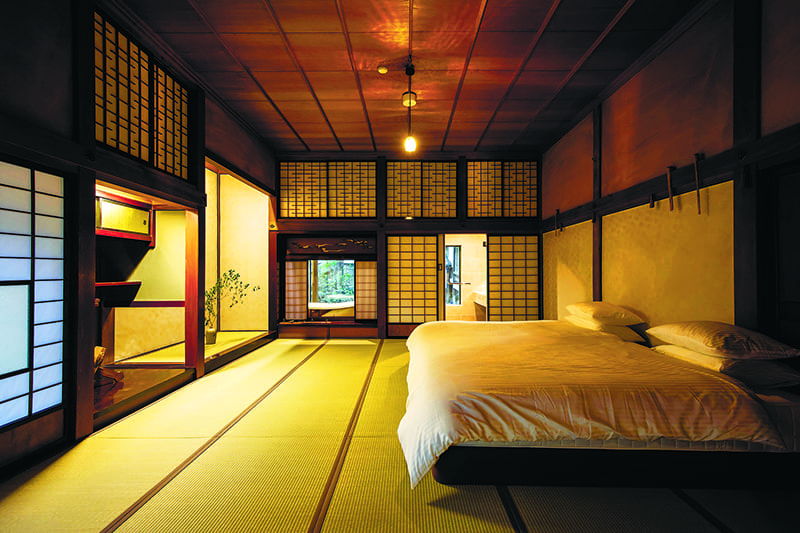
Opened in 2020. Four guestrooms. The inn is a renovated traditional house originally built for the lord of the Matsumoto domain during the Edo Era. Both the main building and a separate residence are situated within a vast site of some 2,340 sq. meters.
● 246 Hofukuji-machi, Matsumoto-shi, Nagano Tel: 0263-88-3266
COURTESY: TOBIRA GROUP
Another of Saito’s inns is Satoyama Villa Honjin, in a renovated early 20th-century re-creation of a villa called Honjin where the feudal lord of the Matsumoto domain and shogunate officials stayed during trips between Matsumoto and Edo (now Tokyo). The original building burned down in 1891. On the 2,340-sq.-meter site there is the main building, a storehouse and a separate residence — all built to the luxurious specifications of feudal lords. However, the property had been left vacant for many years and its survival was in danger. Saito engaged experienced local carpenters to do the renovation, making sure the original shape of the building was retained. No more insulation was added than was absolutely necessary. “We can take the edge off the cold with heaters. Besides, if you wear a traditional winter coat indoors, then you’ll get a more genuine sensation of the Shinshu winter,” he said, using an old name for Nagano. “These are the kinds of things the guests can only experience in an old house, so we want them to experience it to the full.”
One important aspect of Saito’s thinking is that he sees himself only as the current caretaker of the houses. In Japan, there is a teaching that there is a god in all objects — and it often feels like these old houses have guardian deities looking over them.
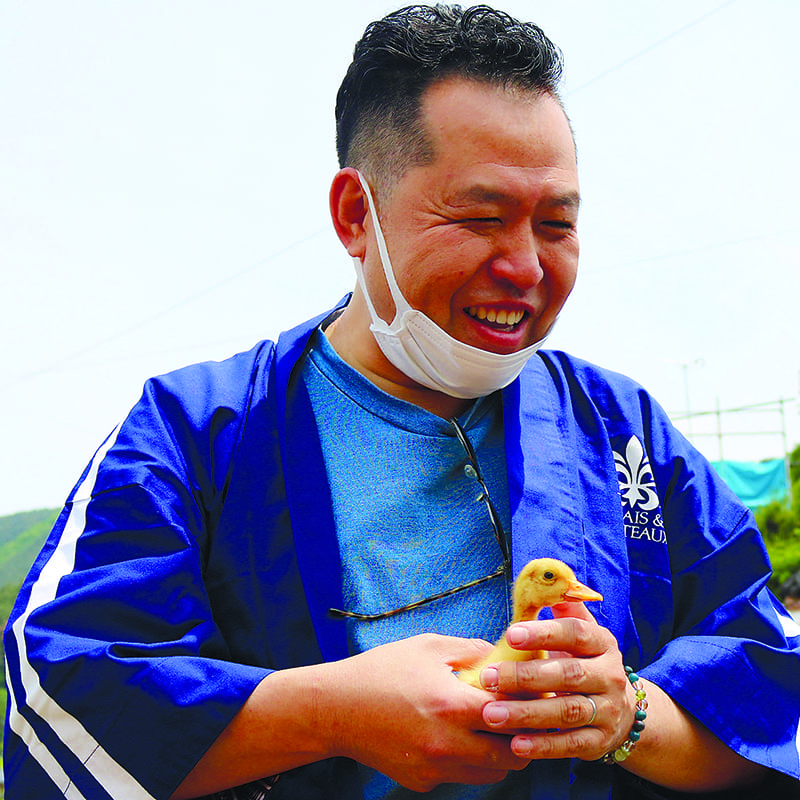
COURTESY: TOBIRA GROUP
“The first time I worked on the restoration of an old country house was in 2007. It was a historic building near Matsumoto Castle, and I renovated it and started Restaurant Hikariya there,” he said. “After about a year, I realized that the building still seemed somewhat aloof, and that’s when I realized that the houses really belong to the land itself, and the land is just letting us borrow them for a while. Since then, we and all the staff started taking time once a month to express our thanks to the building.”
And so these old houses have been nurtured by the land that is Matsumoto. That probably explains the urge to return the profits from the inns back to the local communities. Almost all ingredients used at the inns are procured from local farmers. “Myojinkan is a member of the Relais & Chateaux brand,” Saito said, “and one of the core beliefs of Relais & Chateaux is to ‘show a sincere attitude toward producers.’ Produce must be procured at fair prices, and a healthy relationship with producers nurtured. This has always been important to us.”
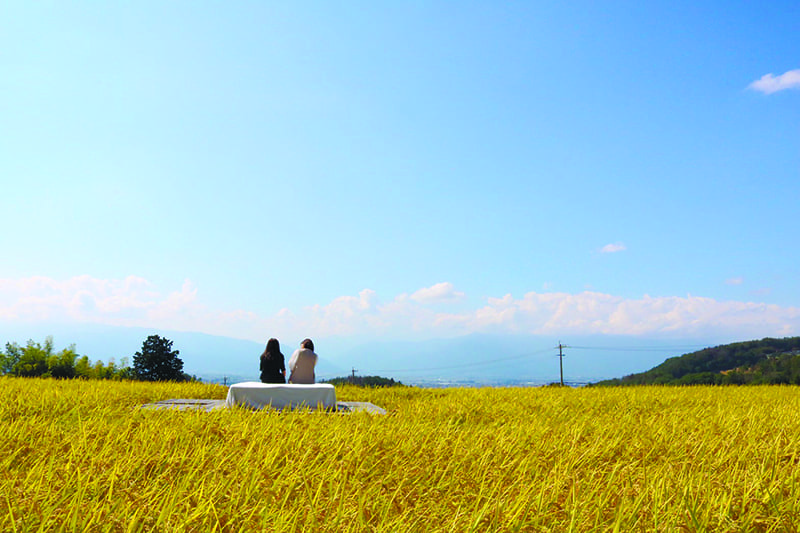
COURTESY: TOBIRA GROUP
Saito also proactively hires local people. From next spring at Den they will start cultivating herbs and strawberries, and an application has been submitted for the farm to be recognized as a certified B corporation for supporting continuous employment. The farm will provide locals with disabilities the opportunity to participate in society through agriculture.
“There are so many different elements in the accommodation industry, and each offers opportunities to connect with the community,” Saito said. In addition to food procurement and employment, it is also possible to provide a venue for community revitalization. That is why he set up a cafe within Satoyama Villa Honjin. If you create a space that can be used by locals, it will also provide a venue for exchange between them and international guests.
“Trying to be prosperous together is the goal that lies at the heart of the SDGs that companies all over the world are now working on,” Saito said. “We look forward to creating new ways to add value in Matsumoto with the help of the local people. I think that is a good role for the hotels of the future to have.”
歴史ある古民家を再生させ、地域全体として豊かになる。
国宝·松本城が街の中心にそびえる長野県松本市。この地で4代に渡り宿泊業を営んできた扉ホールディングスの齊藤忠政が、古民家再生の宿を立て続けにオープンさせた。〈Satoyama villa DEN〉は、築190年の民家を改装した宿。コンセプトは“Sense of Place”。農業体験もでき、里山の暮らしを味わえる。「これまでの宿は“非日常”を味わうものでしたが、ここは宿泊者が自分の日常から離れ、“旅先の日常”へと入り込める場所なんです」
もうひとつの宿は〈Satoyama villa 本陣〉。江戸時代の松本藩主の本陣(明治時代に焼失。大正時代に再建)を、地元の大工らと共に宿として再生させた。齊藤は古民家を土地からの“預かりもの”と考えている。だからこそ、宿の利益は地域にも還元したい。食材を仕入れるのは地元農家。スタッフも地域の人々を積極的に雇用。来春からは〈DEN〉の農場を就労継続支援B型事業所とし、地元の障がいを持った人々に社会参画できる機会を提供する。
「地域の人々と一緒に、松本の付加価値を育んでいく。それをリードするのが宿の役割ではないでしょうか」
Return to Sustainable Japan Magazine Vol. 7 article list page

